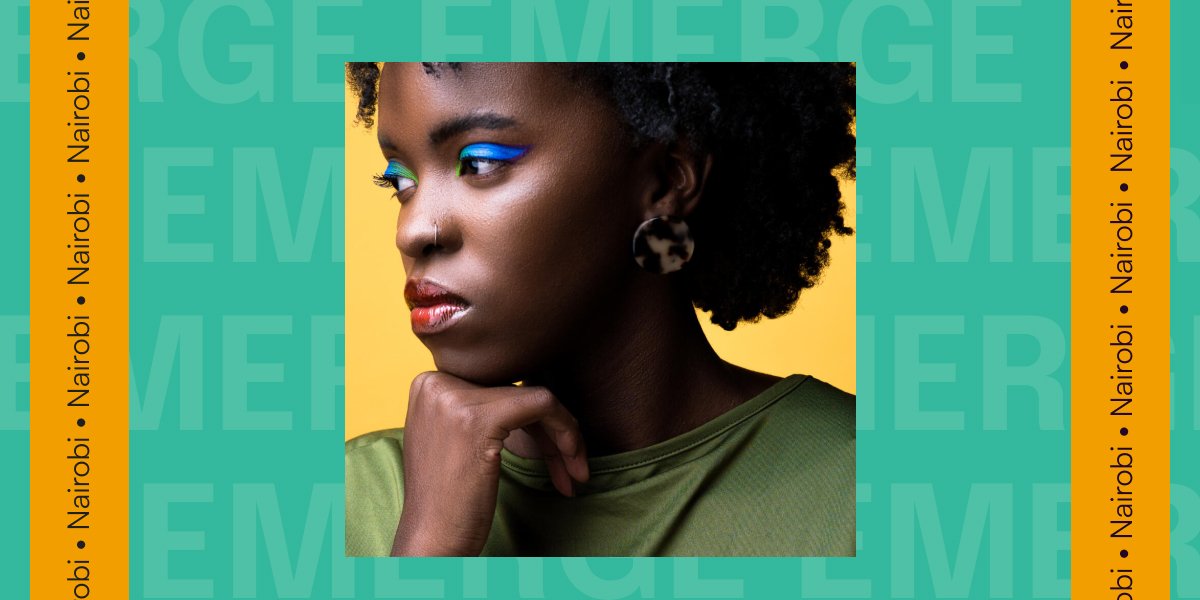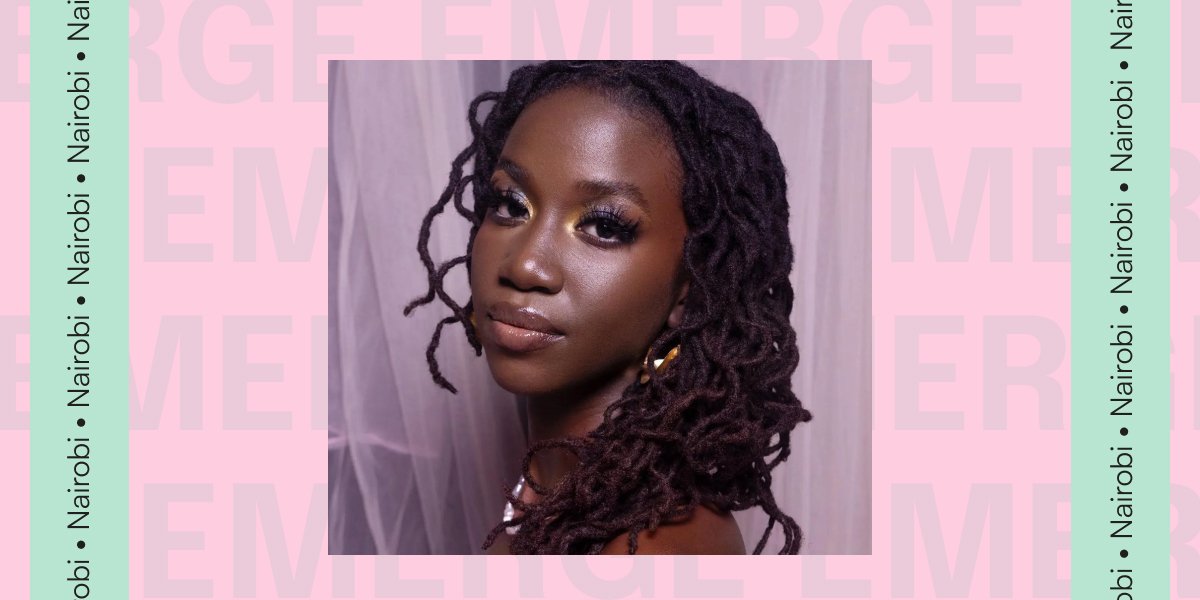Bunmi Ajakaiye is shaking up Nollywood with fresh and joyful narratives
Written by: Deepa Somasunderam
She’s an A-list Nigerian filmmaker.
Welcome to our latest series, Emerge. We are spotlighting creative peeps who are from Asia, Africa, Latin America and the Caribbean. Creating in every language you can possibly imagine, we want to highlight these international tastemakers. We are talking to them about their career journeys, beauty secrets and wellness tips.
With a series of hit tv shows and movies in tow, Bunmi Ajakaiye’s star as a filmmaker is firmly established. Her prowess as a screenwriter and now a director are well respected in the industry.
After growing up in Nigeria, Bunmi lived in Kenya for a while and then attended the FIlm Faculty in Australia after which she returned home to Nigeria to launch her now ten-year career in Nollywood.
In 2022, Bunmi directed Glamour Girls, a Netflix Africa Original, which was the fifth overall watched movie on Netflix the week it launched and was streamed for more than 12 million hours globally.
You studied Economics in university and had a career in banking! What made you fall in love with cinema?
Film and television were a huge part of my life growing up. My older siblings used to bring home movies on VHS tapes and we all gathered round to watch.
We escaped the reality of living in a small neighborhood in Ibadan into the amazing world of whatever we were watching whether it was an Asian, American, European or Nigerian story.
For those two hours the tape rolled, we were enthralled, educated and bonded. I wanted to learn how to create something that could give people the same feeling.
How did your experience with Amaka Igwe, the iconic Nigerian filmmaker, shape your career?
The Late Mrs. Igwe was my very first screenwriting teacher. She blew my mind wide open with her teaching methods and my time with her let me know that it is possible to stretch one’s imagination to any lengths as long as the goal is clear. Intentionality is crucial in a story; one must know exactly what story one is trying to tell and do just that. If a writer doesn’t know what story he or she is telling, it becomes glaring on screen.
She also harped on the power of editing in storytelling and film making as a whole and because of that, I learnt how to edit films. It later became an invaluable skill as a writer, script supervisor, assistant director and eventually a director.
Anytime I write a story I always ask myself what will Mrs Igwe think about this? Will she be impressed even a little? If the answer is no, I go back to the drawing board.
Tell us about your creative process and what inspires your screen writing?
Truth inspires me. Sometimes the truth isn’t always a positive thing but it’s true to at least one person out there and the feeling of authenticity in a story is enough to spur me on.
However, I have become a little more selective of the sort of truths I portray. I made the decision to make content that makes people happy. I watch all kinds of film and TV and have a lot of respect for all genres but I just like to put out things that I know will make people feel good; something to escape to easily and also come out of with a smile.
When I have an idea, I reach for my notepad first. There is something about a pen and paper that just helps me think faster. Later on, I get on my laptop and expand on it. Fun fact, my biggest ideas and breakthroughs are in the shower!
“Truth inspires me. Sometimes the truth isn’t always a positive thing but it’s true to at least one person out there and the feeling of authenticity in a story is enough to spur me on. ”
Was it challenging to take the step into directing and any tips for budding directors?
I had to learn to put my own personal/emotional needs aside when I became director. Directing is an extremely sacrificial role; you are serving everyone’s emotions from your cast to your crew.
Everyone taps from your energy so you have to set your weaknesses aside and remain a trustworthy figure of confidence and competence. It’s a job that heavily requires people skills so I had to devise ways of dealing with different personalities and the problems they present.
From my experience as a crew member, I had enough knowledge of crew challenges and how best to solve for them. I also had the good fortune of having great mentors whom I worked with for years and their advice and ethics helped shape me.
My advice to budding directors is to arm yourselves with the skills necessary to get the best out of your human and financial resources on set. From people skills to creative skills, gather as many as you can in your repertoire. Also, surround yourself with experienced hands who can elevate your vision in the few moments where your imagination is depleted.
You're known for highlighting diversity and social issues in your scripts and characters. What drives your filmmaking?
We are in very interesting times now and as society is evolving and I believe that the art we create is indicative of the times we are in. Highlighting social issues in film leaves room for discourse thereby aiding society’s growth.
As story tellers, we have our duty to turn a mirror to society and hope it spurs change or at least some improvement. Having the opportunity to shift the thinking of at least one person out there definitely drives me.
Bunmi on set / @bunmiajakaiye
The Eat Love Heartbreak series ended on a cliffhanger in Episode 5! Also, you have also released the short film Fade on YouTube. Can you talk to us about these projects, the inspiration and why they are important to you?
Eat, Love Heartbreak was a fun twist on boy meets girl. I wanted to create an easy watch while highlighting a subject that is highly debated amongst young Nigerians today; cooking as a compulsory survival skill for men and women. I also love seeing two people from two different backgrounds and life experiences wade through all their misgivings to make a connection.
Fade was a story I told to my best friend in 2010 about solid emotional connections and loss. I wanted to highlight the loss of true love and share a message of hope that it’s okay to seek help and attempt to move on. Hope in all its forms is something I don’t think we have enough of in this world. The hope of finding someone special, the hope of healing from pain, the hope of looking past differences to find something meaningful, the hope that a person can evolve in their thinking and so on. Hope is important to me.
Nollywood is growing at a phenomenal rate. What do you see in the future of Nollywood and what sort of growth are you most excited about?
These are exciting times in Nollywood and my sincerest hope is that the industry grows to a point where we have proper structure such that everyone from actor to the crew is adequately looked out for.
Right now, the world is more aware of Nollywood than ever before. I’m hopeful to see how the various international interests in Nollywood will serve the industry as a whole, leaving something even better for the next generation of filmmakers.
“These are exciting times in Nollywood and my sincerest hope is that the industry grows to a point where we have proper structure such that everyone from actor to the crew is adequately looked out for. Right now, the world is more aware of Nollywood than ever before. ”
What is your self-care routine for those busy days on set?
Filming can be chaotic but I try to find some joy in the middle of the chaos. I capture a happy moment whether in video or picture no matter how fleeting or seemingly inconsequential. I look back and remember that there was a nice moment.
What is your go-to outfit when you're working?
I used to be a huge believer in the “all black everything” look for filming because it looks clean, distinct and also helps with minimizing your reflections when filming around glass areas. I used to wear black T shirts, black pants, black sneakers, jackets and hats.
But these days, I love to dress up as every filming day is a special occasion!
Any beauty products you can’t do without for a movie premiere?
I absolutely believe in the health of the skin beneath all the makeup. My skin care game is heavily reliant on niacinamide and Azelaic acid and of course, sunscreen SPF50+.





